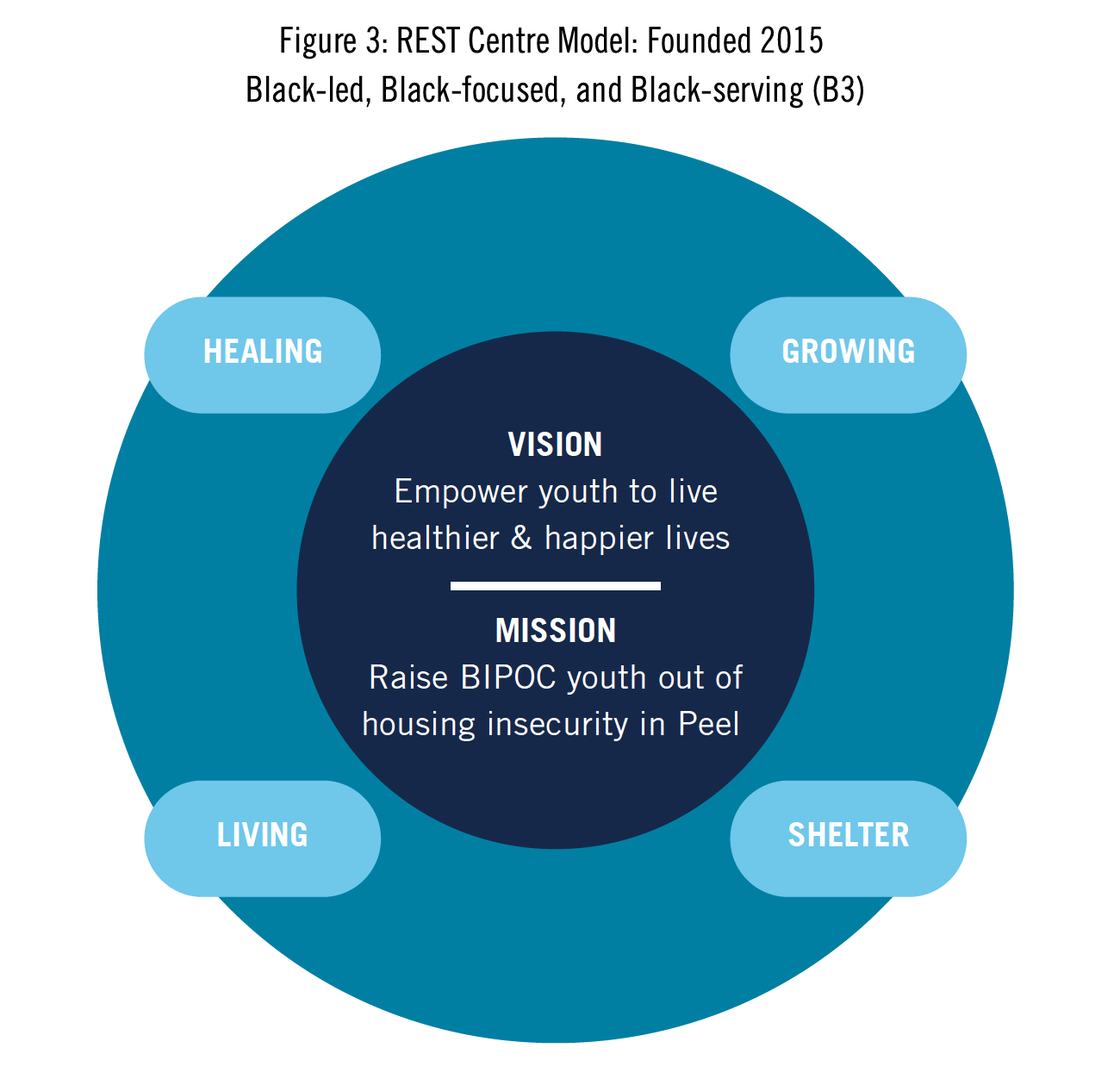
Pathways to stability
This study shows how REST Centres uses a culturally grounded, holistic model—combining housing supports, food security, and mental-health care—to help Black and BIPOC youth in Peel move from homelessness toward long-term stability.
Led by: Cesar Ramirez and Ashley Wilkinson
Team: Cesar Ramirez, Ashley Wilkinson, Prentiss Dantzler
Who we are
The Housing Justice Lab, led by PI Prof. Prentiss Dantzler, is a new research centre focused on housing justice across North American cities.
background
This study, developed in collaboration between REST Centres and the Housing Justice Lab, examines how a Black led, Black serving organization in Peel supports youth experiencing homelessness through a holistic model grounded in housing, food security, and culturally responsive mental health care. Drawing on internal reports, client surveys, and comparative scans of similar service providers, the report highlights REST’s innovative supportive housing model that partners directly with landlords, its dignity centered approach to food support, and its trauma informed HERO program designed specifically for Black and BIPOC youth.
Together, these supports create pathways to long term stability that traditional systems rarely offer. As REST expands into property ownership and scales its programs, this collaboration is helping strengthen regional efforts to address youth homelessness and build more equitable and culturally grounded systems of care.
Findings
This study draws on multiple sources to offer a comprehensive review of how REST Centres supports youth experiencing housing instability across three areas of support: housing stability, food access, and mental health support.
Key findings include:
1) REST’s collaborative housing model strengthens long term stability by pairing rental subsidies with landlord engagement, culturally informed training, and ongoing case management.
2) REST’s food security approach promotes dignity and autonomy, using flexible grocery card supports that allow youth to make their own choices and build everyday independence.
3) REST’s mental health programming centers culturally grounded, trauma informed care, offering individual and group supports tailored specifically to Black and BIPOC youth.
4) REST fills a distinctive role within a crowded service ecosystem, bridging culturally informed supports with both emergency responses and long term housing pathways in ways few organizations currently provide.

To learn more about REST CENTRES and other efforts to support Black youth, explore:

